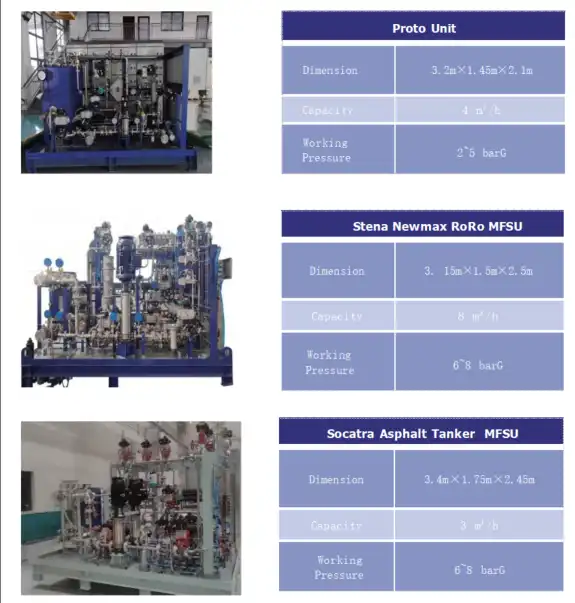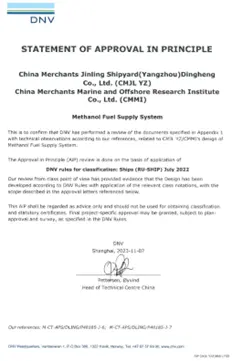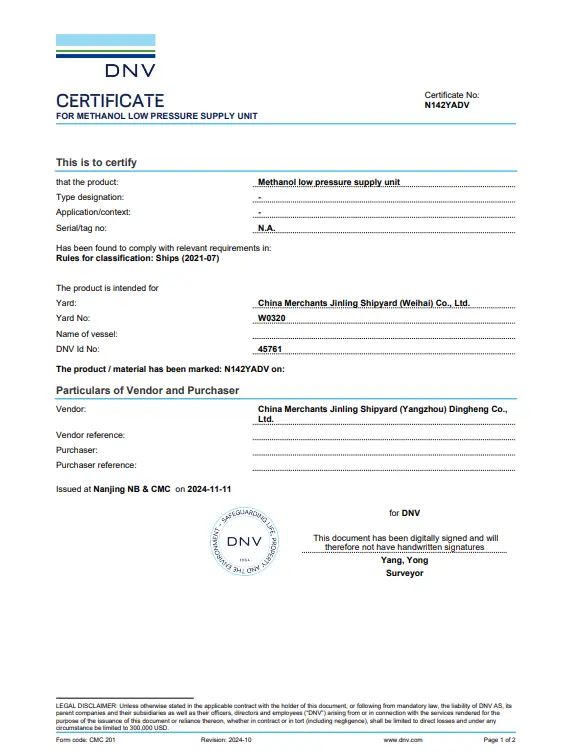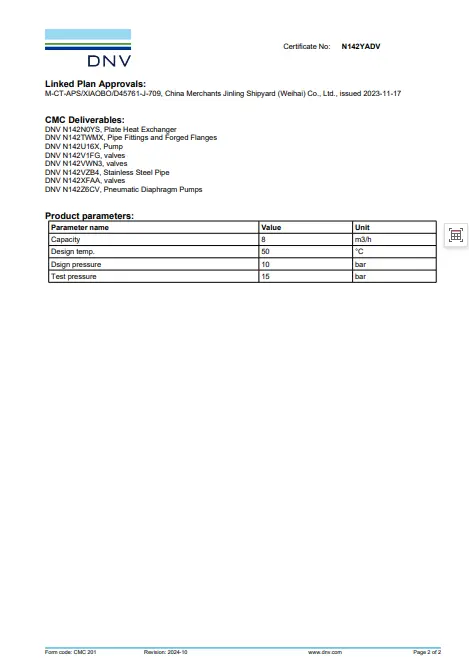Methanol Fuel Transfer Infrastructure
Overview of the Methanol Fuel Transfer Infrastructure (MFSS)
The Methanol Fuel Transfer Infrastructure (MFSS) includes essential subsystems such as the primary supply unit, filling and transfer modules, auxiliary support systems, along with safety and control components. We provide independent design and manufacturing of MFSS units, as well as fully customized solutions tailored to the specific needs of our clients.

WHY CHOOSE US?
1. Vast Industry Expertise – Our team possesses extensive experience in dual-fuel vessel construction, chemical tanker engineering, liquefied gas carrier systems, and related marine technologies, establishing us as a trusted leader in the industry.
2. End-to-End Solutions – We offer comprehensive systems that encompass Methanol Fuel Transfer Infrastructure (MFSS), LNG Fuel Gas Supply Systems (FGSS), Ammonia Fuel Supply Systems (AFSS), and LPG Cargo Handling Systems (CHS).
3. Demonstrated Success – We have successfully delivered 19 clean fuel handling systems, including two MFSS skids for the Stena RoRo projects, highlighting our commitment to operational excellence and adherence to the highest quality standards.
4. Innovators in Technology – As pioneers in developing methanol fuel systems within the domestic market, we initiated our research, development, and commercialization activities ahead of other major industry players in late 2022.
5. Complete Lifecycle Support – Our services cover the full spectrum, from conceptual design and production through installation and deployment, as well as ongoing post-commissioning assistance.
Product Specifications

Product Overview
1. METHANOL DELIVERY UNIT – This unit guarantees continuous compliance with methanol parameters, such as pressure, temperature, flow rate, and purity, in accordance with engine manufacturer specifications. It ensures operational stability during load variations and transient conditions throughout startup and shutdown cycles.
2. BUNKERING & TRANSFER MODULE – Built to comply with SOLAS-IBC Code standards for chemical tankers, this subsystem addresses the hazardous properties of methanol, including its low flashpoint, toxicity, and corrosiveness, during storage, transfer, and bunkering operations.
3. FLEXIBLE CONFIGURATION – The modular design provides flexible installation options, allowing for both standalone units and integrated system components that can be adapted to fit the vessel layout.
4. COMPLIANCE WITH SAFETY STANDARDS – With a dual-certified design, it meets both SOLAS-IBC chemical safety protocols and IGF Code standards for low-flashpoint fuel systems, ensuring complete regulatory compliance.
5. TAILORED INTEGRATION – Configurations can be customized for newbuild projects or retrofits, optimized according to the specific operational parameters of each vessel.
QUALITY CERTIFICATION
DNV AIP Certified Design



INSTALLATION PROCEDURE
1. A detailed review of vessel documentation and interface requirements will be conducted, with any technical questions resolved prior to installation.
2. Installation tools and equipment will be readied, and necessary safety measures will be implemented before starting the installation process.
3. Pre-assembled MFSS modules will be transported to the installation site using suitable lifting and positioning equipment.
4. The module foundations will be secured to the vessel structure, ensuring precise alignment and adherence to flatness and stability specifications.
5. Connections will be made for methanol transfer lines, auxiliary piping, and control cabling, ensuring leak-tightness and electrical continuity.
6. Verification of subsystems and integrated functional testing will take place to confirm proper bunkering operations, fuel delivery performance, and safety interlock functionality.
For more product information about Methanol Fuel Transfer Infrastructure, please leave a message below.
